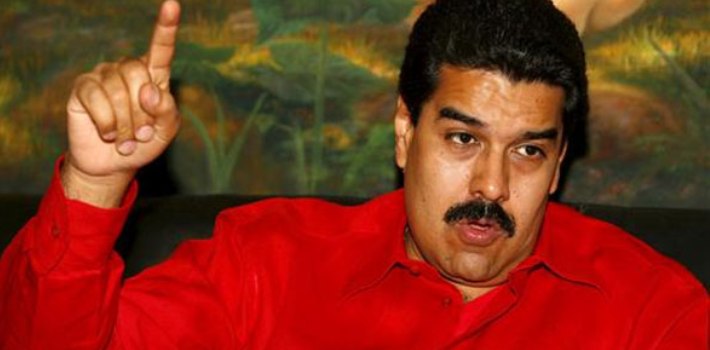
EspañolBy José Marulanda
This is the impatient question on everyone’s tongue, both in Venezuela and abroad. The political, social, and economic crisis is getting out of control and discussions about a premature end to President Nicolás Maduro’s constitutional period abound.
Some very turbulent and decisive days lie ahead, and the “21st-century socialism” movement will be put to the test.
Warnings about the breakout of violence and a humanitarian disaster in Venezuela have been frequent. A quick overview seems to lend support to the prediction: shortages affect 85 percent of food products and 90 percent of pharmaceuticals.
The country suffers from the world’s highest inflation rate. Its capital, Caracas, ranks as the world’s second most violent city, losing only to San Pedro Sula, Honduras.
Shameless corruption schemes and other scandals undermine the country’s institutions and make the current government politically unstable.
The ruling United Socialist Party of Venezuela (PSUV) is stuck in a whirlwind of accusations against the government. The members themselves, meanwhile, resort to scapegoating, revisionism, or self-criticism. Preparations are underway to replace the government’s visible head, as is usual with authoritarian regimes in which a clique runs the entire country for its own benefit.
Some factions within the PSUV are joining the opposition-controlled Congress by calling for Maduro’s removal. Public opinion overwhelmingly wants the president to step down; a recent poll showed that 72 percent of Venezuelans want to get rid of the captain in command of a ship of state that is rapidly heading toward the seabed.
But will Maduro’s ouster end the agony common Venezuelans go through everyday? Of course not, everyone knows this. The main problem is not the president but the political and economic system called 21st-century socialism, implemented 17 years ago by a passionate yet misinformed army officer, Hugo Chávez.
How exactly Maduro’s exit from power will come about is the subject of much speculation. He could resign and leave for some Caribbean island, or Russia, or Colombia, accompanied by the First Lady and congresswoman Cilia Flores.
Maduro could also be removed by Congress. Or by the people through a recall referendum. Or even by a military coup.
Chavista-friendly organizations such as UNASUR, CELAC, ALBA, and Petrocaribe will not lift a finger against Maduro.
Whatever the future holds for the president, the Venezuelan drama will continue. The people, including once ardent Chávez supporters, will continue suffering in endless lines just to get their hands on whatever food is available at supermarkets.
Rumors about the military abound: that officers are in cahoots with the Maduro administration; that only the army leadership supports the Chavistas because they receive money and influence; that military barracks are on the verge of rebellion; that soldiers will or will not shoot against the people when protests erupt; that, in sum, they will define the course of the country.
While domestic and foreign pundits scrutinize the military, the international community comes across as apathetic to the tragedy unveiling in this petrol state, where the oil business continues to operate, unfazed by the crisis. On February 20, state-run PDVSA reached a deal with Russian Rosneft to tap into three gas reservoirs on the Venezuelan coast.
Chavista-friendly organizations such as UNASUR, CELAC, ALBA, and Petrocaribe will not lift a finger against Maduro. Despite their rhetoric on human rights, they ignore how, in September 2015, Maduro condemned “foreign interventionism” at the United Nations while he bought brand new anti-riot equipment from Brasil, Spain, and China.
The Venezuelan armed forces have announced that they will purchase five war planes form China. This comes after Beijing refused to extend Maduro the grace period of a US$50 billion loan. And Saudi Arabia pulled back from a deal reached with Venezuela — along with Russia and Qatar — to freeze oil output in an effort to curb tumbling prices.
[adrotate group=”7″]Despite all this, the probability of Maduro’s downfall are not as imminent as some international media outlets keep announcing. He is certainly close to being toppled, but Venezuelans’ suffering will go on as opposition begins its own internal battle between radicals and moderates.
In Caracas, criminal bands have ramped up their violence. Grenades are exploding across the city. The colectivos, groups of Chavista thugs, loot trucks daily and they target Polar, Venezuela’s largest brewery and food processing company. The Bolivarian Liberation Forces (FBL), a sort of paramilitary group which Chávez created, are increasingly carrying out attacks.
FBL pamphlets call the population to “prepare for confrontation.” On February 20, two explosives exploded inside Fuerte Tiuna, Venezuela’s main military base. The organization exhorted soldiers “not to be accomplices of the criminal administration and high military commanders who are destroying the country.”
The few private firms that are still around are under risk of expropriation. A clash with Colombia over the closed borders is a possibility. All 15 nations that make up the Caribbean Community (Caricom) have backed Guyana in its territorial dispute with Venezuela over a strip of land where Exxon Mobil discovered oil reserves.
Venezuelans, once rich and proud, wake up every day feeling more ashamed of their sorry state, caused by their ignorance or apathy. They try to maintain some dignity, though.
One day, I was having breakfast at a hotel with a friend from Caracas. The waiter brought us just coffee and he apologized: “it’s a pity that we don’t have any milk.” My friend, smiling, replied with a popular Chavista slogan: “but we have our fatherland!
We all laughed.
This article was originally published on Confidencial Colombia.
José Marulanda is a newspaper columnist, lawyer, security analyst, and Colombian army colonel in active reserve.
 Versión Español
Versión Español












